One of the latest up-and-coming natural products is CBD oil, and it’s already lining up an impressive array of potential health benefits.
Not all supplements that get a lot of hype can measure up, but CBD has a lot of solid research backing it up. Many of the studies are fairly recent because of a long-time ban in the U.S. on all hemp products, so it’s likely that even more evidence will be revealed as quality studies continue to be implemented.
Here’s a look at the research-based benefits of CBD we already know about, plus the importance of choosing a clean, quality CBD oil that will actually work.
What Is CBD?
CBD is short for ‘cannabidiol’ and is one of the major compounds found in the hemp or cannabis plant (Cannabis sativa). It belongs to a group of over 60 compounds found in cannabis that are classified as cannabinoids.
It’s difficult to have a discussion about CBD without also discussing some of its “relatives”: THC and marijuana.
There’s a lot of confusion surrounding the definition of marijuana, hemp, cannabis, and the various compounds found in these plants.
Marijuana and hemp are technically the same species of plant: Cannabis sativa. The main difference between the two lies in the amount of tetrahydrocannabinol (THC) present in a particular plant. THC is the psychoactive cannabinoid that causes the “high” associated with marijuana.
Hemp (sometimes designated as Cannabis sativa L.) is defined as having 0.3% of THC or less. Plants that have more than 0.3% of THC are classified as marijuana (which is still illegal at a federal level).
‘Cannabis’ is the genus name of the flowering group of plants that both hemp and marijuana belong to, so both can technically be referred to as cannabis.
What CBD Does and Doesn’t Do
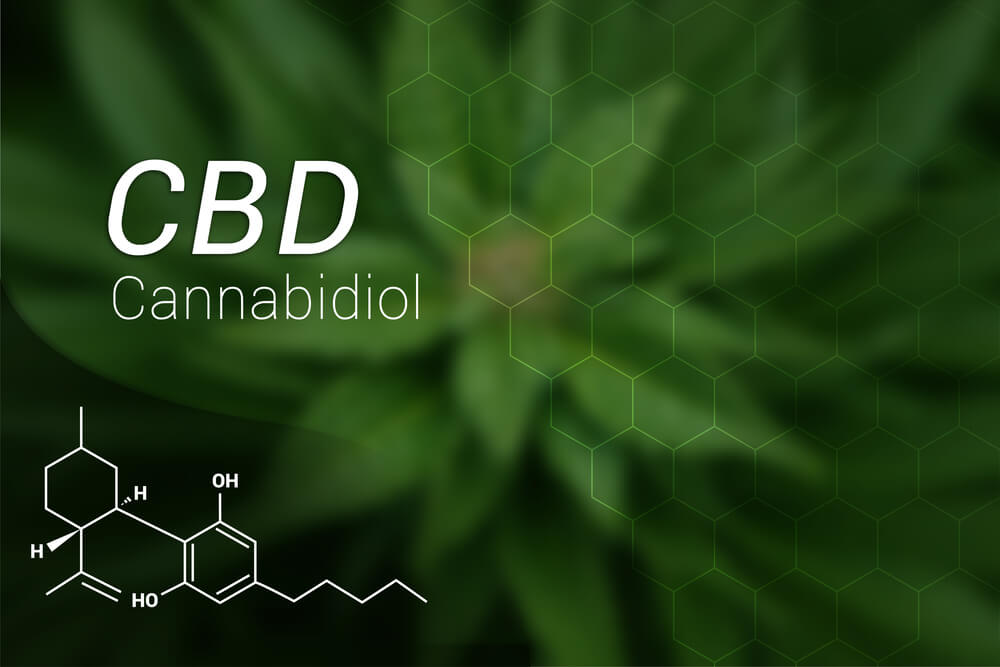
It’s important to note from the beginning that the benefits of CBD oil do not carry any psychoactive effects like THC does. In fact, CBD products are standardized to have 0.3% or less of THC to distinguish them from marijuana products.
So how does CBD work?
CBD is thought to work by interacting with your endocannabinoid system- a biochemical system discovered only about 25 years ago.
The endocannabinoid system (ECS for short) is basically a communication system within your body. It’s made up of a system of signaling molecules, known as endocannabinoids, and their receptors, which are found all throughout the body.
Your body naturally synthesizes endocannabinoids in certain instances (possibly while running, for example), but cannabis products can also interact with the ECS because of the cannabinoids found in them.
This research is all still very new, but so far the broad theory is that the great potential of CBD comes from its ability to help keep the ECS in balance and functioning well. It does this in part by inhibiting reuptake of certain endocannabinoids and by enhancing GABA receptor signaling.
Forms of CBD
There are many different forms of CBD available. In fact, there seem to be new forms popping up each day: gummies, chews, tinctures, capsules, topical creams or gels, infused chocolate (yes, really), and so on.
However, CBD oil remains one of the most potent forms (and typically the least processed). It’s made by extracting CBD directly from the hemp plant and combining it with a “carrier” oil to formulate a certain strength (500 mg, 1000 mg, etc.).
Of course, there are some keys to making sure you get a truly potent and pure CBD oil, but it remains one of the easiest ways to benefit from this fantastic compound.
Top Potential Benefits of CBD Oil
Offers Natural Pain Relief

The cannabis plant has been used for pain relief for at least a few thousand years. Now, modern research is confirming that extracted CBD also has pain-relieving and anti-inflammatory properties.
Some studies show that these effects come, at least in part, from interaction with the ECS. Specifically, CBD and other cannabinoids impact endocannabinoid receptor activity and interact with neurotransmitters to reduce pain.
Other research shows that CBD also has an anti-inflammatory effect and can relieve nerve pain.
Human trials have been limited so far, although several high quality ones are now underway. However, from those that have already been conducted, there’s some evidence that CBD can alter your perception of pain, making it seem less severe.
Overall, CBD oil has the most potential for naturally reducing chronic pain and inflammation.
May Help Alleviate Mental Health Disorders
Another of the top benefits people are turning to CBD oil for is relief from anxiety and similar disorders.
It’s no secret that mental health disorders are on the rise. Depression is actually the top contributor to disability around the world, and anxiety isn’t very far behind. Post-traumatic stress disorder (PTSD) is another debilitating condition that’s often difficult to treat.
In both animal and human studies, CBD has shown promise for reducing anxiety, symptoms of depression, and even insomnia. Some research also indicates that it may be able to improve symptoms of PTSD.
Larger studies are still needed to determine the exact role CBD oil can play in improving mental health. However, it has already been used to safely and effectively treat anxiety, PTSD, and insomnia in children and could prove to be a good alternative to conventional drugs that come with a long list of side effects.
Could Help with Epilepsy and Seizures
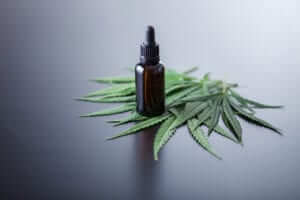
Research is showing that CBD has huge potential for treating epilepsy and related disorders that involve seizures.
Once again, this goes back to the endocannabinoid system (ECS), which is known to be involved in seizures. The cannabinoids within cannabis plants, particularly CBD, interact with the ECS in a way that gives them anticonvulsant properties.
The research has been so definitive that in 2018 the FDA approved a CBD-based drug called Epidiolex for the treatment of Lennox-Gastaut syndrome and Dravet syndrome (rare seizure disorders).
Hopefully, even more breakthroughs will follow.
Can Alleviate Cancer and Chemotherapy Symptoms
Cancer and cancer treatments like chemotherapy bring a whole host of unpleasant side effects with them. Pain, nausea, and vomiting are often at the top of the list.
We’ve already explored how CBD can help with pain management, and studies are indicating that it may also alleviate nausea and vomiting.
In one small trial, a mouth spray made with CBD (that also contained THC) was able to enhance the standard treatment for chemotherapy-induced nausea and vomiting. It was well tolerated with no serious adverse effects.
Once again, more higher quality studies are underway to determine how CBD can be most effectively used to help cancer patients going through chemo.
Anti-Cancer and Anti-Tumor Potential

Perhaps one of the most exciting potential benefits of CBD oil is its cancer-fighting effects.
There are many natural substances, particularly antioxidant-rich plant foods, that have anticancer potential. However, CBD has shown a special ability to suppress the growth of certain cancer cells and aid in their destruction.
To date, research has only been conducted in test-tube and animal studies, but CBD has already shown potential to prevent the spread of colon, lung, breast, prostate, and brain cancer. It also seems to enhance the effects of chemotherapy.
One research review even concluded that CBD could be utilized in the future for “optimising the effect of the chemotherapeutic agents” in breast cancer.
May Have Important Neuroprotective Properties
With neurodegenerative disorders like Alzheimer’s becoming commonplace, it’s never been more important to protect the health of your brain. Preventing cognitive decline takes many healthy practices (like consuming these herbs and spices), and CBD may have a big role to play.
For example, some lab and animal studies have indicated that CBD can help prevent the kind of neurodegeneration associated with Alzheimer’s. It appears to do this in part by decreasing neuroinflammation.
Long-term use of CBD was also able to help prevent cognitive decline in mice genetically predisposed to Alzheimer’s disease.
Other research (in humans) has found that CBD has the potential to improve quality of life for those with Parkinson’s disease, particularly when it comes to sleep.
It’s looking like CBD oil could be a great addition to a brain-boosting lifestyle.
Beneficial for Heart Health

Some recent research is indicating that there are a few potential benefits of CBD oil for heart health.
To start with, it has anti-inflammatory properties that can reduce the inflammation associated with many chronic diseases, including heart problems.
A small clinical trial from 2017 also found that 600 mg of CBD was able to reduce resting blood pressure in participants. It even prevented them from experiencing a high blood pressure spike when exposed to stress tests. This could be very important, since high blood pressure is a big risk factor for heart disease.
Other (animal) studies have found that CBD can reduce oxidative stress and may help prevent heart damage.
May Help Treat Acne
Acne is one of the most common skin conditions and can be frustrating to treat. It doesn’t have one single cause, but two of the most common contributing factors are an overproduction of sebum and inflammation.
Not only is CBD anti-inflammatory, recent studies have also revealed that it can actually prevent sebaceous glands from producing excess sebum. This has made it of particular interest in topical acne treatments, although researchers agree that human studies are needed to determine effectiveness, dosing, etc.
May Help With Addiction and Withdrawal Symptoms
One of the most fascinating benefits of CBD oil currently being explored is its potential ability to help those in treatment for an addiction and those who want to quit smoking.
A pilot study from 2013 first found that CBD reduced cigarette consumption in regular smokers. Another later study from 2018 revealed that taking CBD (800 mg) made cigarettes less appealing to smokers during a withdrawal period.
Other preliminary research shows potential for CBD to help with opioid addictions, which could be huge considering the current opioid crisis. Hopefully, continuing research into CBD will soon offer natural help for those struggling with addiction.
How Much CBD? + Precautions
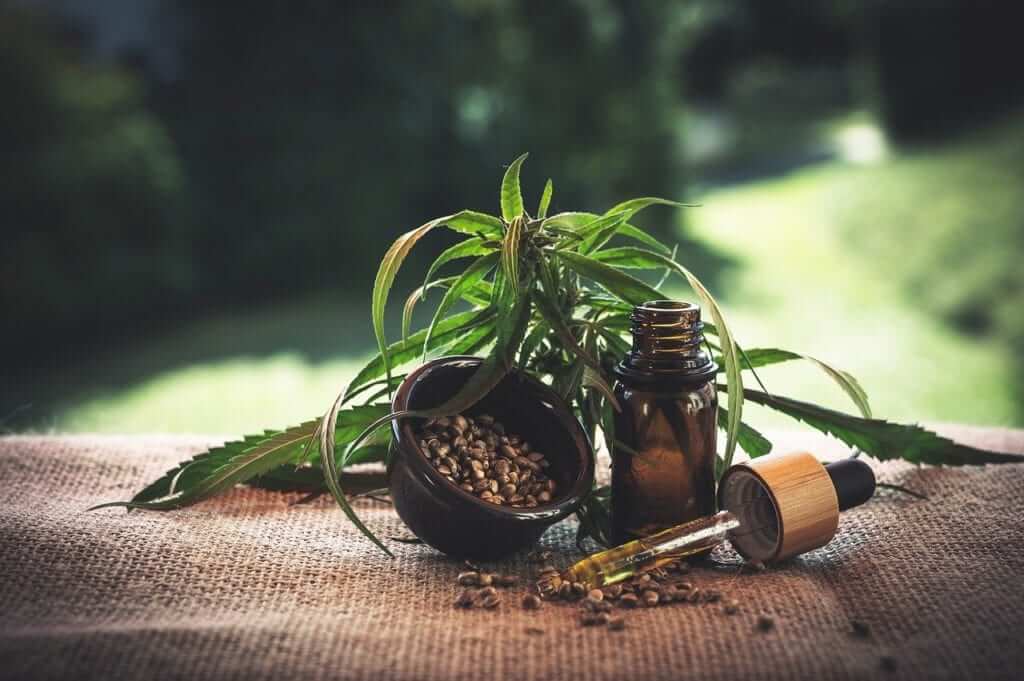
At this point, there is no standard recommended daily dosage for CBD oil. How much you may need to notice an effect will depend on body weight, strength of the CBD oil, and what you’re using it for. The best approach is to seek out a high quality, pure CBD product and follow the manufacturer’s recommendation for daily use.
Most people take CBD oil with no adverse effects, but it has been reported to occasionally cause stomach upset, fatigue, and weight change.
More importantly, CBD can interfere with cytochromes P450 (CYPs), which are enzymes needed for drug metabolism. Be aware of this and consult your health professional before using CBD if you take prescription drugs. (The drugs affected usually come with a “grapefruit warning” because grapefruit can also interfere with CYPs.)
Finally, most experts advise avoiding CBD usage during pregnancy and breastfeeding because its potential effects on the fetus are not yet known.
Knowing What to Look for in a CBD Oil
Of course, in order to get the full benefits of CBD oil, you need to choose a quality product. And unfortunately, this isn’t always easy to do.
Because of the fast growing popularity of CBD, many companies just want to get a product out on the market with little regard for quality.
This can be seen in a recent report that evaluated testing done on 84 different CBD products. Of the 84 products, only about 31% actually contained the amount of CBD listed on the label, and THC was detected in 18 samples.
Apart from mislabeling, there a few other things to look out for when shopping for a CBD oil.
First, look for a CBD oil that is full spectrum. This means it contains other naturally occurring cannabinoids that may have their own health benefits (studies are ongoing) as well as trace amounts of THC (still at or below 0.3%).
Also, be aware that CBD products can easily become contaminated with chemicals such as pesticides and heavy metals. This is because cannabis plants easily absorb compounds from the soil and water as they grow. And according to Consumer Reports, most states don’t require CBD to be tested for contaminants before it’s sold.
So not only do you want to buy an organic CBD oil to avoid pesticides, it’s also a good idea to look for companies that have a third party test their products for impurities.
Top Quality CBD Oil: Ojai Energetics
If you are looking for a truly top-notch CBD oil with all of the guesswork taken out, Ojai Energetics Full Spectrum Hemp Elixir goes above and beyond on quality and purity.
Ojai Energetics is a full spectrum CBD oil made with pure organic hemp oil.
It contains only 100% USDA certified ingredients and is third party tested for both contaminants and the amount of cannabinoids present (so you can be sure what’s on the label is what’s actually in the bottle).
But what makes Ojai Energetics Hemp Elixir truly outstanding is its patented colloidal technology that makes it up to 20 times more absorbable than other CBD oils. This means you get the full effect while taking less and can actually feel the CBD doing its work.
Learn more about Ojai Energetics Full Spectrum Hemp Elixir for yourself (and their 365 day money back guarantee).
By putting a quality CBD oil into your body, you’ll be able to quickly discover its benefits for yourself- more of which are sure to be discovered as research continues!


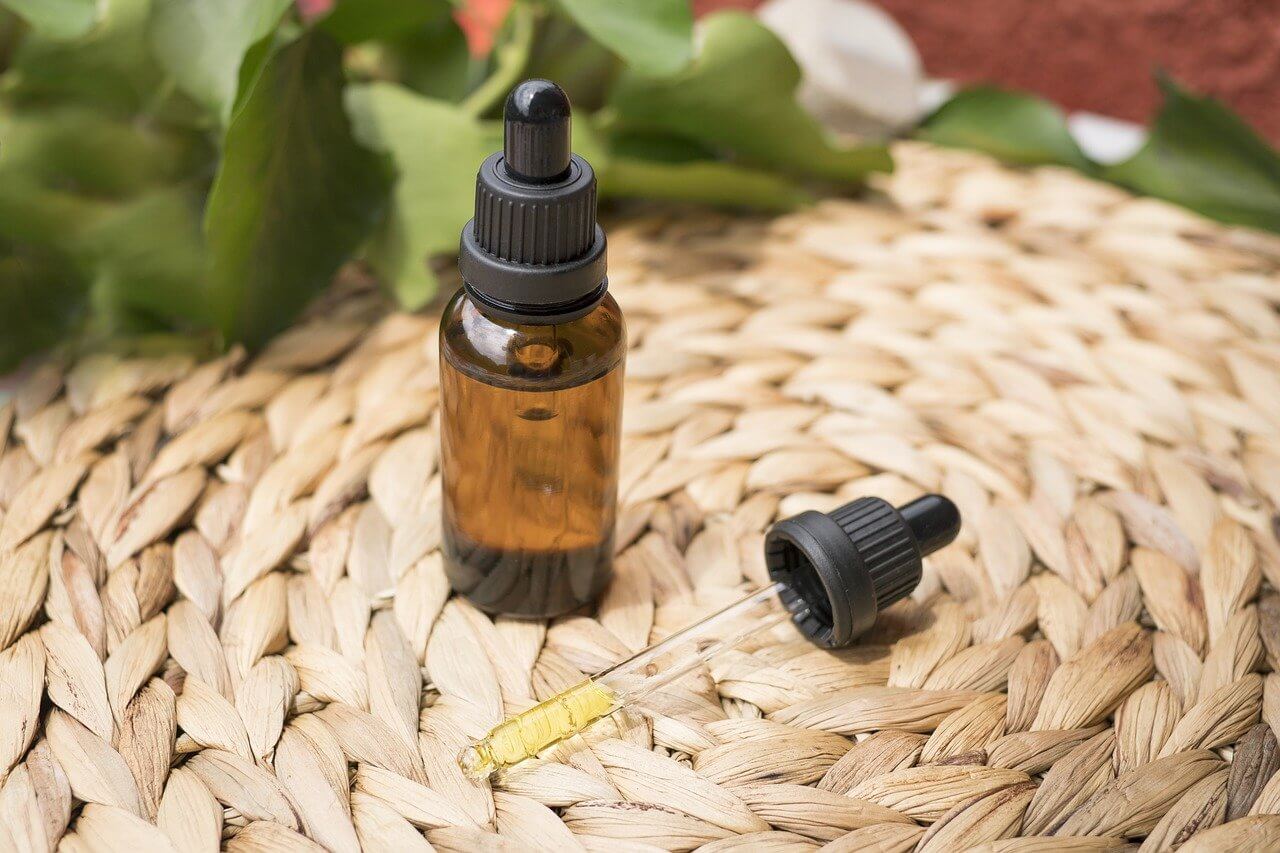
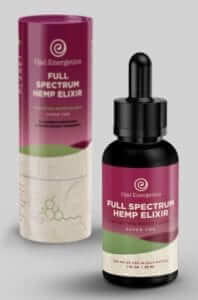
Thank you, Brian,
This is a very informative article which dispels the myth of the past rationale associating cannabis with THC & its relative illegal nature. I am a retired health care provider, without any Dad joke for you, (but yours’ are really good on this topic) and I am often asked for research
articles, basically supportive, as in this report.
I will pass this report on, but cannot find the scientific back-up research?
Sorry, my jokes do not compare to these “good” dad jokes.
Shirley
Hi Shirley, and thanks for the kind words!
RE: “Cannot find the scientific back-up research,” within the article you will see phrases with links, and those typically link to the original research. 🙂
CBD, hemp oils – they are all way overpriced, at least for those in chronic pain who are disabled like me. Just once, I’d like to see a company who would try to make their products more affordable. Those who need the help of these products the most, can’t afford them.
I’ve been a huge proponent of cbd for a long time. liked reading this article. always looking for more science about it. am curious always about cbd that has no thc versus cbd that does. i also wonder if it might be useful for young children suffering from neuro inflammation of the brain. just wish it was easier to do more research! thank you!
The article on CBD is interesting. Many narcotics at low dose are good for body. In fact cannabis, opium etc were medicines in the past, until their synthetic analogues conquered the market. Of course at higher concentrations, hallucination, habit formation and other mental effects may arise. So, now a days even growing such plants are punishable offence.
Any way a scientific approach in this issue is worth for better life.
Very informative.
Great article
But comments dated into the future
Makes one wonder about the actual scientific acts??? Another Dad Joke?
Thanks for the kind words… re dated into the future, where? Today is the 8th, it’s what I am seeing on comments.
I have used the genuine CBD cream for one and a half years on my foot, after a nerve was cut. It was like a miracle in reducing the neuropathic pain. Better than taking harmful pain killing tablets. Cheaper versions do not work.
Find this really interesting … thank you. I have spondolysis of the spine and at times really painful. Do not want to take anti imflammatories so this could be a possibility.